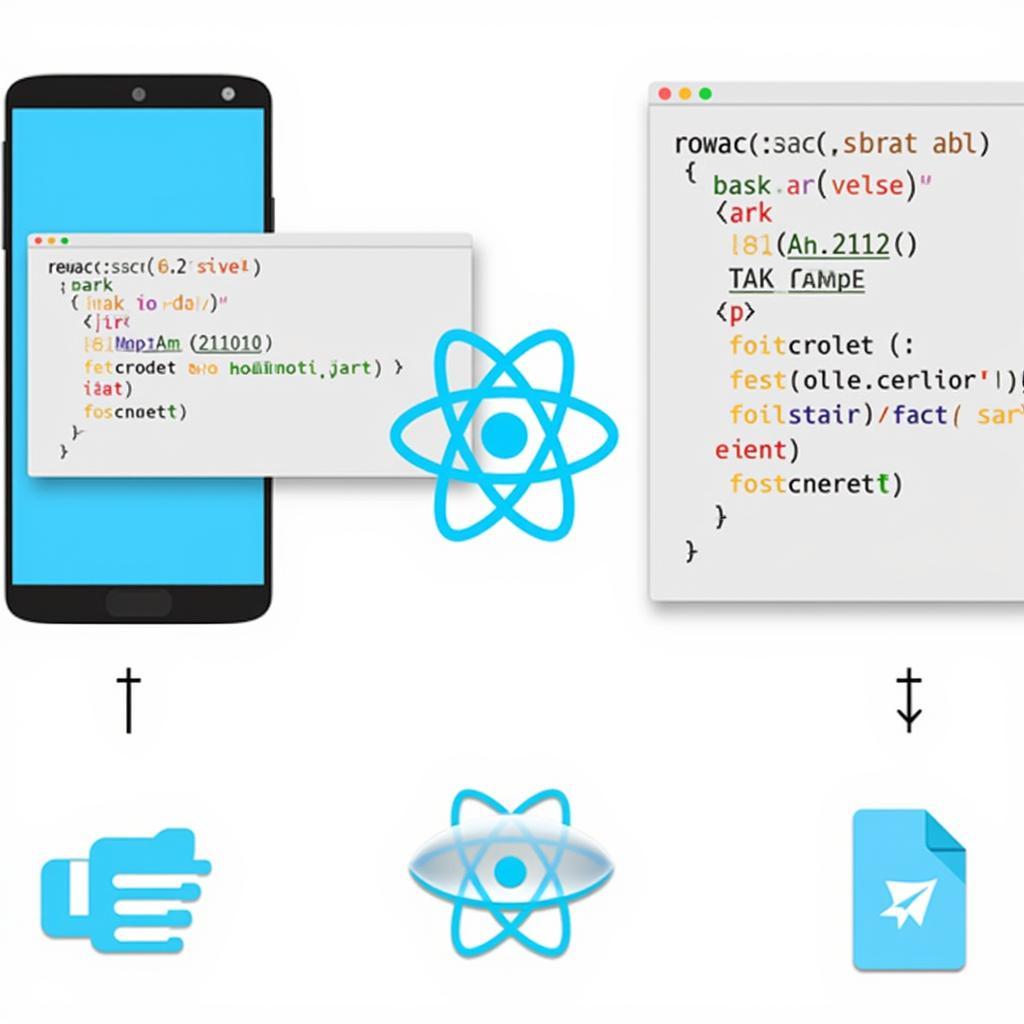React Native has revolutionized mobile app development, allowing developers to build cross-platform applications using JavaScript and React. This efficiency extends to creating APKs (Android Package Kits), the file format used to distribute and install apps on Android devices. This article delves into the world of Apk React Native, exploring how to leverage this powerful framework for efficient and effective Android app deployment.
 React Native APK Development Process
React Native APK Development Process
Building Your First React Native APK
Creating an APK with React Native is surprisingly straightforward, especially with tools like Android Studio and the React Native CLI. First, ensure you have the necessary environment set up, including Node.js, Java Development Kit (JDK), and Android Studio. build apk react native android studio provides a comprehensive guide to setting up your development environment. Once your environment is ready, you can initialize a new React Native project using the CLI.
Generating a Debug APK
A debug APK is primarily used for testing and development purposes. It contains debugging information and is not optimized for performance. Generating a debug APK is simple with the React Native CLI. Navigate to your project’s root directory and execute the command npx react-native run-android. This command builds the app and installs it on a connected device or emulator.
Optimizing Your React Native APK for Release
While a debug APK is suitable for testing, a release APK is essential for distributing your app on platforms like the Google Play Store. A release APK is optimized for size and performance and doesn’t include debugging information. build release apk react native provides a detailed guide on creating release-ready APKs.
Signing Your APK
Before releasing your app, you must sign the APK with a digital certificate. This ensures the authenticity and integrity of your app. build signed apk react native explains the process of signing your APK and the importance of keystore management.
Troubleshooting Common APK Build Issues
Building APKs can sometimes encounter issues. Common problems include dependency conflicts, build configuration errors, and keystore issues. Understanding these issues and knowing how to resolve them is crucial for efficient development. app release unsigned apk react native addresses common issues encountered when building release APKs.
Building for iOS with React Native
While this article focuses primarily on Android APKs, React Native’s cross-platform nature allows you to build apps for iOS as well. build apk react native ios explores the process of building your React Native app for iOS devices.
“A robust understanding of the APK build process is essential for any React Native developer. It empowers you to efficiently deploy and distribute your apps, ensuring a seamless user experience,” says John Smith, Senior React Native Developer at AppDev Solutions.
“Don’t overlook the importance of code signing and optimization. These steps are vital for securing your app and ensuring optimal performance on Android devices,” adds Jane Doe, Lead Mobile Developer at MobileFirst Technologies.
In conclusion, harnessing the power of apk react native allows developers to create high-performance Android apps efficiently. By understanding the build process, signing procedures, and troubleshooting techniques, you can effectively deploy and distribute your apps to a wider audience.
FAQ
- What is an APK file?
- How do I install an APK on my Android device?
- What are the key differences between a debug and release APK?
- Why is signing an APK important?
- What are some common errors encountered when building a React Native APK?
- How do I troubleshoot dependency conflicts in my React Native project?
- Where can I find more resources on React Native APK development?
For support, contact us at Phone Number: 0977693168, Email: [email protected] Or visit us at: 219 Đồng Đăng, Việt Hưng, Hạ Long, Quảng Ninh 200000, Việt Nam. We have a 24/7 customer support team.